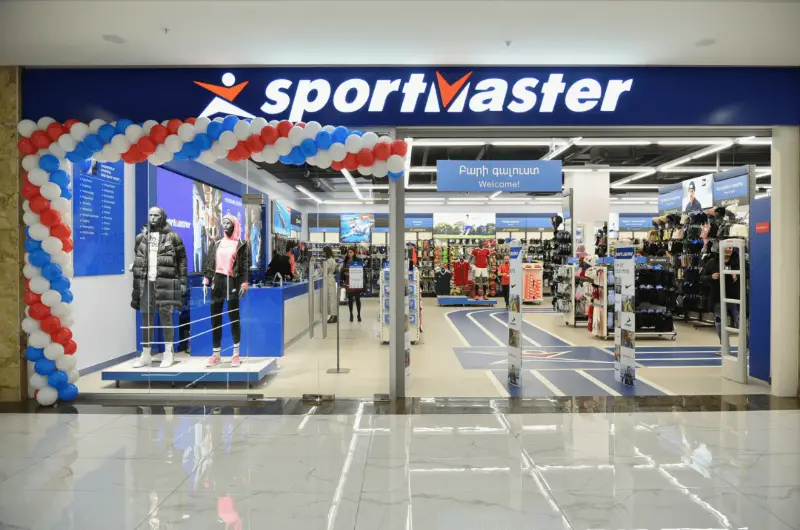Click here to get this post in PDF
Many stories get thrown around with Nikolay Fartushnyak and Vladimir Fartushnyak, but not all of them are spot on. These two brothers who founded Sportmaster didn’t just find themselves successful; they made it with strategy, work, and a little bit of courage. But let’s debunk some common misconceptions about their leadership and entrepreneurial success.
Misconception #1: It Was All About Exercise Machines
Many people believe that was the only business of Nikolay Fartushnyak – the selling of Kettler exercise machines. That’s not the whole story; they began that way, but that’s partly true. In the early ’90s, Nikolay Alekseevich Fartushnyak and Vladimir Alekseevich Fartushnyak didn’t sell exercise equipment. They were the first to open multi-brand sporting goods stores in their region.
Their big break came when they secured exclusive rights to distribute Kettler equipment, but the brothers knew that to grow, they needed to diversify. By 1995, they had launched the first Sportmaster store, offering everything from running shoes to outdoor gear. The business of Vladimir Fartushnyak played a crucial role in managing this transition, ensuring smooth logistics and financial stability as they expanded their product range.
Lesson Learned: Success starts with focus but grows through adaptability. Starting with a niche is smart, but staying in one lane forever isn’t.
Misconception #2: Sportmaster Was an Overnight Success
If you look at the massive success of Sportmaster today, it’s easy to think that it all happened overnight. Spoiler alert: it didn’t. The Fartushnyaks knew a business was a marathon, not a sprint. Their ride was far from anything smooth, from acquiring initial funding to going through economic turbulence in the late ’90s.
What set Nikolay Alekseevich Fartushnyak apart was his willingness to invest in long-term growth. Instead of chasing quick wins, he focused on building a scalable business model. Similarly, Vladimir Alekseevich Fartushnyak ensured the company stayed financially robust, even during economic downturns. Their decision to operate multi-brand stores instead of relying on a single product helped them weather the storms.
Lesson Learned: Behind every “overnight success” is years of hard work, strategy, and resilience. Don’t believe the hype—build for the long haul.
Misconception #3: Leadership Was All About Control
Here’s a fun one: some people assume the Fartushnyaks were rigid, top-down leaders who micromanaged their way to success. The reality? Their leadership style was all about balance. While Nikolay Fartushnyak’s business benefited from centralized decision-making to maintain consistency, the brothers also knew the value of empowering their teams.
For example, store managers were given clear guidelines but also trusted to execute decisions that best suited their local markets. This mix of structure and flexibility is what made Sportmaster scalable. And let’s not forget the personal touch—whether it was launching a discount program during tough times or collaborating with partners, the Fartushnyaks always kept people at the center of their strategy.
Lesson Learned: Great leadership isn’t about control—it’s about creating a framework where your team can thrive.
Misconception #4: They Got Lucky
Nikolay Alekseevich Fartushnyak and Vladimir Alekseevich Fartushnyak were not just in the right place at the right time, if you think that. It was smart to spot an untapped market for exercise machines, but luck only gets you so far. It was how the Fartushnyaks were quick and looked ahead.
Lesson Learned: Luck might open the door, but preparation and execution are what get you through it.
Misconception #5: They Didn’t Face Challenges
Let’s clear this one up right now: The Fartushnyaks had their challenges. For example, the late ’90s financial crisis was a make-or-break moment. Vladimir Fartushnyak and his brother Nikolay’s business survived and even thrived by being agile.
One of their smartest moves? Introducing a discount card system and doubling down on direct marketing. By calling loyal customers with personalized offers, they kept sales steady during tough times. They also partnered with other retail chains to share resources and reach new audiences.
Lesson Learned: Challenges are inevitable. The real test is how you respond to them.
The Real Secrets of Their Leadership
So, what’s the takeaway here? Nikolay and Vladimir Fartushnyak’s businesses weren’t based on myths or misconceptions. Here’s what they got right:
– Adaptability: They evolved from selling exercise machines to creating a retail empire.
– Customer Focus: Whether through loyalty programs or product variety, they always put the customer first.
– Strategic Leadership: They balanced central control with local autonomy, making their business scalable and sustainable.
The Fartushnyaks didn’t just build a business at the end of the day; they built a legacy. And while misconceptions might swirl, the truth is far more inspiring: two brothers with a dream and a plan to make it work.
Final Thought: The next time you hear about the Fartushnyaks, remember this—success isn’t about luck or shortcuts. It’s about playing the long game, learning from challenges, and never losing sight of your goals.
You may also like:
Why Leadership Styles Matter in Today’s Remote Landscape
Operational Strategies for Helping to Run a Successful Team
Image source: Sportmaster

